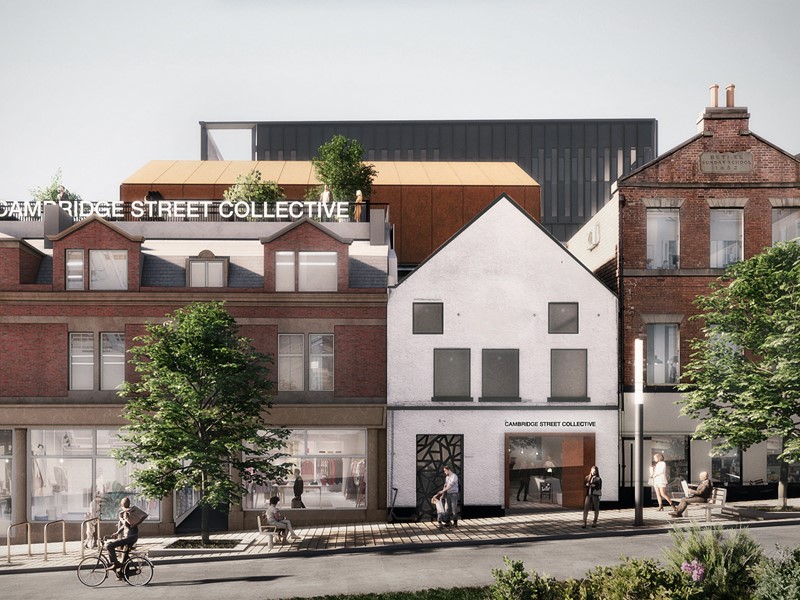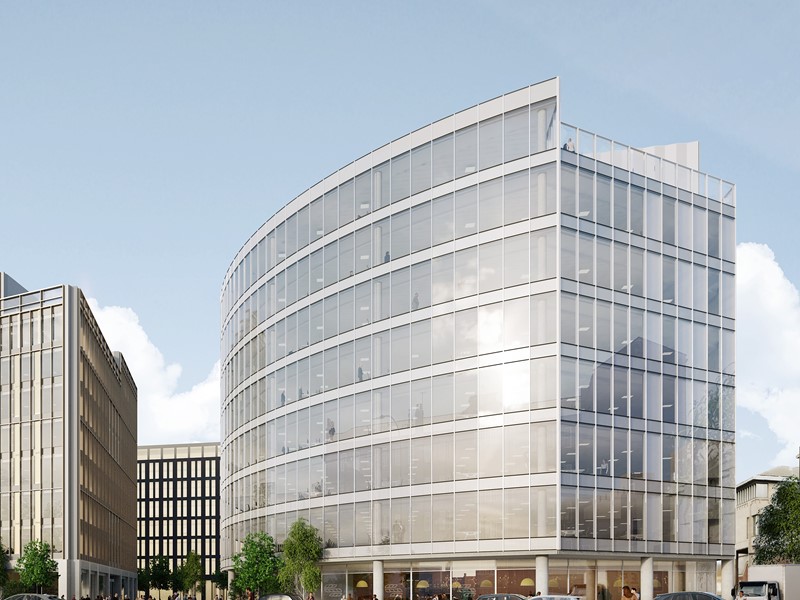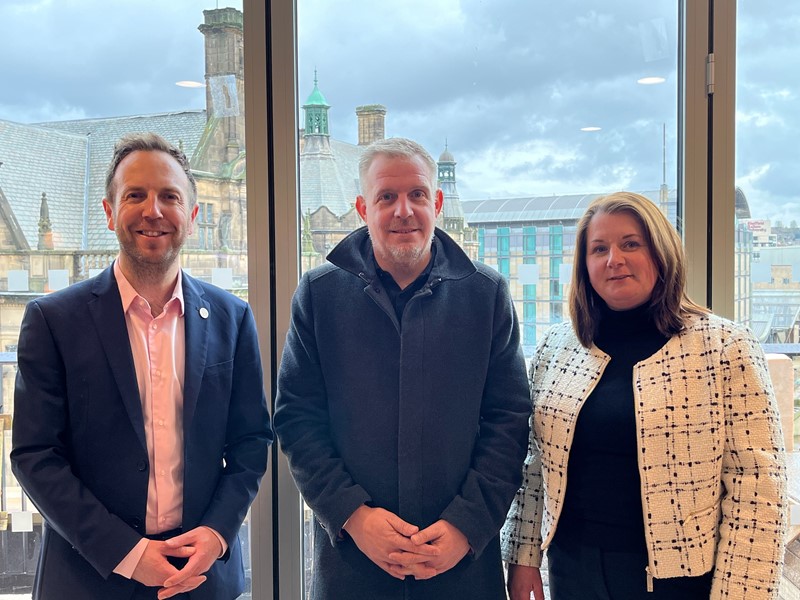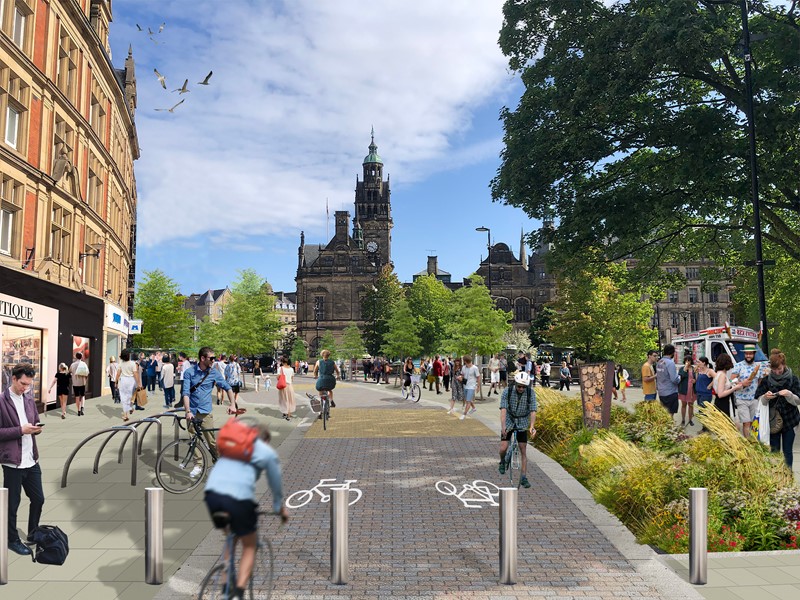Sheffield based construction firm Henry Boot Construction Limited has been appointed on two developments within Heart of the City, the cultural and social destination known as Cambridge Street Collective and Elshaw House – a brand-new low carbon office building.
City centre set to build on strengths as council shares ambitions for future development
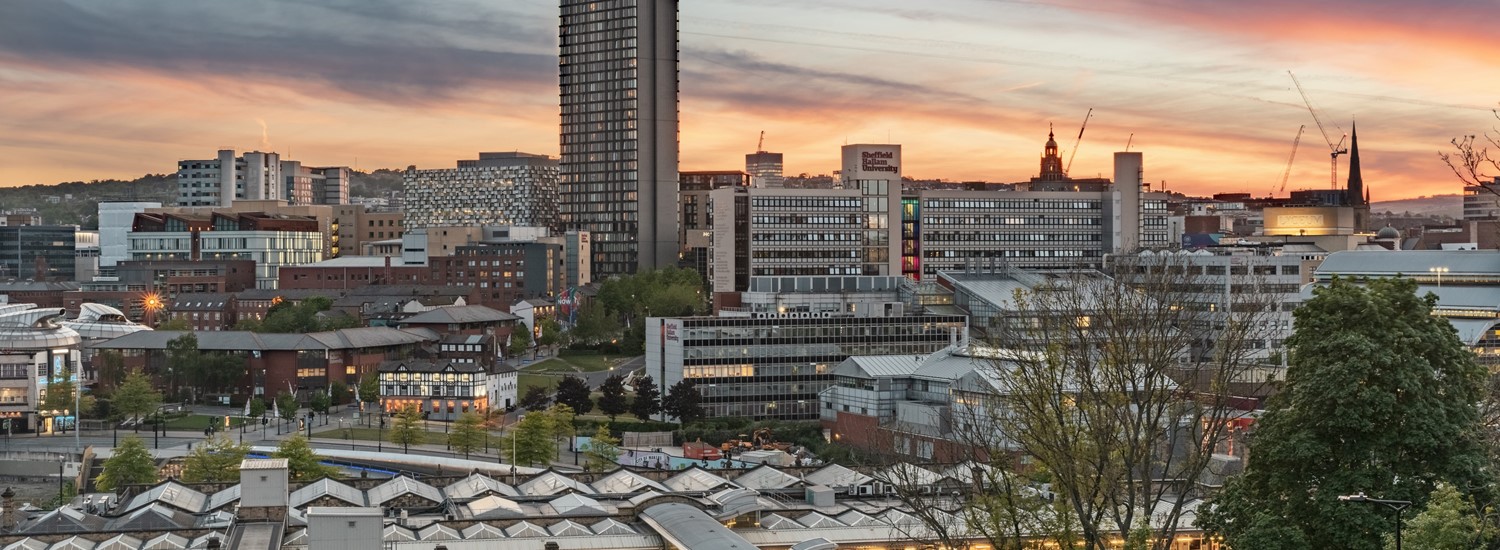
The pandemic has seen city centres up and down the country face challenges like never before as businesses and residents adapted to life in lockdown and a sudden shift in the way we could travel, socialise and work.
To support the city’s recovery from Covid-19 and ensure that our spaces meet people’s changing needs, the council has set out its plans to establish a vision for the future development of the city centre and the priorities that this will focus on, as part of its One Year Plan, in collaboration with the Sheffield people.
The city centre has been the focus of numerous initiatives to support businesses to bounce back over the past few months, including many events funded by the council’s £2m Economic Recovery Fund and Additional Restriction Grant. More than a million people flocked to the centre during August to take part in Summer in the Outdoor City, which saw activities taking place in the Peace Gardens, Tudor Square, Division St and Castlegate.
The aim of the City Centre Strategic Vision, which is currently being developed, will be to explore how the city centre can be shaped in the long-term to reach its full potential – offering flexible workspaces, high quality housing in new urban neighbourhoods, biodiverse greenery and an exciting mix of restaurants, bars, shops, and entertainment.
Alongside new initiatives, the strategy will include the ongoing £470m Heart of the City regeneration project and the rejuvenation of Fargate through the £15.8m Future High Streets Fund, which will see a new event space created and redundant space in the area repurposed.
One of the key priorities of the Strategic Vision will be the creation of new neighbourhoods in central locations such as Castlegate, which has recently been transformed as part of the council’s Grey to Green initiative, and the Moor, which has become home to a host of places to eat and shop in recent years. With capacity for approximately 21,000 homes, the city centre is an attractive choice for living and would reduce the need to build on greenfield sites in the future.
Strong transport links to and around the city centre are vital to ensuring the area continues to develop and thrive, and part of £50m funding from the government’s Transforming Cities Fund will be allocated to the Connecting Sheffield City Centre scheme, laying the groundwork for more reliable and accessible journeys by foot, cycle, and bus - improving active travel and public transport routes to make sustainable travel a more realistic option for everyone.
Ambitions for the city centre strategic vision include the council’s commitment for Sheffield to become carbon neutral by 2030. As the main hub of activity in the city, the centre will play a key role in leading sustainable development to achieve this target, including the council’s proposals to introduce a Category C Clean Air Zone in the area. The report is available to read here.
Councillor Terry Fox, Leader of Sheffield City Council, said:
“The City Centre Strategic Vision will be essential in making sure that we lay a strong foundation that we can build on in years to come and create a city centre that meets the needs of the people using it. We know that to be successful we need to recognise that what people want from their city centres has changed over the years – it’s not just about going into town to shop anymore. The new vision and plans that will go with it will help us to develop a diverse and resilient city centre that celebrates the independent and eclectic spirit Sheffield is known for.
“We’re a major city and we want to shout about what we have to offer, from our fantastic parks to our unique architecture. There’s something for everyone and we want to put a clear vision in place so that we can continue to safeguard our environment, provide great homes and make Sheffield city centre a place everyone wants to be.”
Public consultation on the City Centre Strategic Vision will take place in January 2022. The full report is available here.
